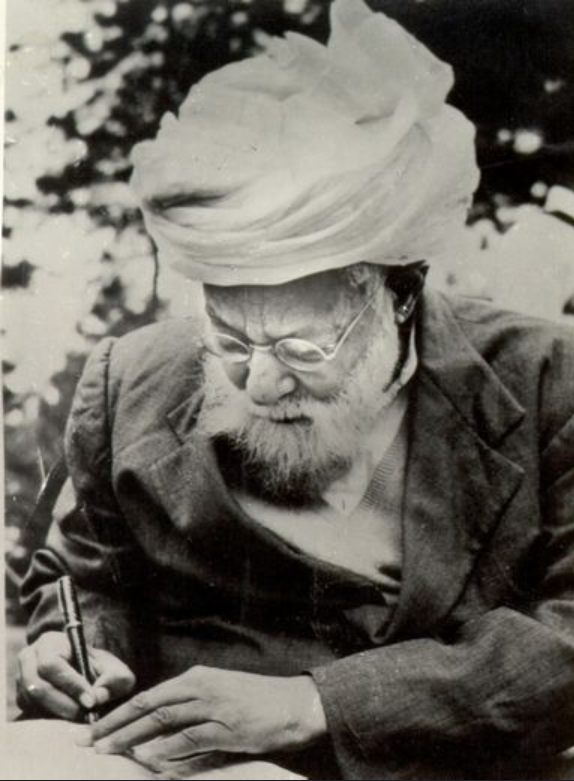In this Bible vs. Quran series, we confront scientific issues in religious scripture, showing how these scriptures fare when put to the test of science and reason. We will cover the following topics, with a new article released frequently, God-willing:
- How Old is the Universe?
- Adam — First Man or First Prophet?
- Evolution — Science & Scripture.
- Ancient Aliens on Earth Before Humanity?
- Was Noah’s Flood Real?
- Geocentricity & the Miracle of Joshua.
- The Days of Creation.
The Bible on Adam
In Genesis 1 & 2, the Bible tells us that Adam was literally the first man on Earth, and Eve the first woman:
“So God created mankind in his own image, in the image of God he created them; male and female he created them.. And there was evening, and there was morning—the sixth day.”
Genesis 1:27,31
“Now no shrub had yet appeared on the earth and no plant had yet sprung up, for the Lord God had not sent rain on the earth and there was no one to work the ground, but a stream came up from the earth and watered the whole surface of the ground. Then the Lord God formed a man from the dust of the ground and breathed into his nostrils the breath of life, and the man became a living being….
But for Adam no suitable helper was found. So the Lord God caused the man to fall into a deep sleep; and while he was sleeping, he took one of the man’s ribs and then closed up the place with flesh. Then the Lord God made a woman from the rib he had taken out of the man, and he brought her to the man.”
Genesis 2: 8-9, 20-22
This is pretty clear — there were no humans; God made Adam from dust and breath, and then Eve was made from one of the ribs of Adam.

When Was Adam Really Born?
However, the Bible has actually served us an immediate problem. The passage from Genesis 1 tells us that Adam was created on the sixth day, well after foliage had appeared on the third day:
“Then God said, “Let the land produce vegetation: seed-bearing plants and trees on the land that bear fruit with seed in it, according to their various kinds.” And it was so… And there was evening, and there was morning—the third day.”
Genesis 1:11,13
However, Genesis 2 tells us that Adam was created ‘when no shrub had yet appeared on Earth.’ So how did Adam appear on the sixth day, but before plants that were only produced on the third day?
This glaring contradiction is never resolved by the Bible narrative, which moves swiftly on.
| Genesis 1 | Genesis 2 |
| No days are given | |
| Adam created before plants + animals | |
| Day 3: Plants and vegetation. | |
| Day 4: Sun, moon, & stars. | |
| Day 5: Animals created | |
| Day 6: Man & woman created in God’s image. | |
| Eve extracted after plants + animals produced. |
Eve or Lillith?
There are more problems here. In Genesis 1, man and woman are created together on the sixth day, several days after plants and animals appear:
“So God created mankind in his own image, in the image of God he created them; male and female he created them.”
Genesis 1:27 (NIV)
But that’s a very different picture to Genesis 2, which describes Adam being created alone, followed by the appearance of plants, animals and the Garden of Eden. Finding no beast to be a suitable helper for Adam, God apparently then made a wife for Adam:
“But for Adam no suitable helper was found. So the Lord God caused the man to fall into a deep sleep; and while he was sleeping, he took one of the man’s ribs and then closed up the place with flesh.”
Genesis 2:20-21 (NIV)
Genesis 1 tells us that man and woman are created together as the last piece of the puzzle. Genesis 2 tells us Adam is the first piece and Eve the last piece. This contradiction inspired ancient Jewish priests to invent a solution — Lilith!
Lilith was said to be the first wife of Adam mentioned in Genesis 1, who defied Adam, leading to their separation. Then, Eve came to be her replacement in Genesis 2. Legend has it that Lilith was then hunted down by angels and transmuted into a night-demon, responsible for the deaths of infants ever since.
Fortunately, this chilling tale has no Biblical basis — no other wife is ever named, and it contradicts the Genesis 2 account that ‘no suitable helper was found.’ It also does nothing to resolve the aforementioned problems in the order of days.

Can Christians Ignore This?
We are thus left with two intractable problems when reading Genesis 1 and Genesis 2 together. Biblical scholars have tried to escape this through an academic explanation: these are two separate creation accounts, melded together by Biblical compilers, intended to be read independently of the other. While this may be true, it is devastating for the believer in the Bible as God’s holy word. Why is God actively misleading his followers within the first few pages of the Holy Book? Could He have not simply given us a coherent, truthful creation account; one that gives us both a historical reality and spiritual instruction?
Let alone the internal inconsistency, the substance of the Genesis stories is perhaps more disconcerting for modern Christians. The idea that Adam was made before plants, literally straight out of dust and divine breath, without any kind of evolution, before his wife came out of his ribs, has caused some consternation over the years. It would fatally undermine the findings of paleontology, archaeology, and other related fields.
The modern Christian is therefore left in a dilemma. Throw out much well-established science, or discard the Bible? Given the option, Christian culture at large has chosen science.
But is there another way? Does the Quran allow us to keep a more refined understanding of Adam while not rejecting modern science? Let’s find out.

The Quran on Adam
The Quran first describes Adam in this way in Chapter 2:
“Call to mind, when thy Lord announced to the angels: I am about to place a vicegerent (Khalifa) in the earth. They said: Wilt Thou then place there also such as will create disorder therein and shed blood, while we glorify Thee with Thy praise and extol Thy Holiness? Whereupon He admonished them: I know that which you know not.
He taught Adam the names of all His attributes, then He presented the manifestations of those attributes to the angels and asked them: Tell Me the names of these, if you are right. They answered: Holy art Thou! No knowledge have we save that which Thou hast taught us. Thou alone art the All-Knowing, the Possessor of Wisdom.
He turned to Adam and commanded him: Adam, do thou inform them of the names of these. When Adam had told them the names, Allah said to the angels: Did I not say to you: I know the secrets of the heavens and of the earth, and I know all that you disclose and all that you conceal?’”
Quran, 2:31-34, Zafrullah Khan translation
Note that there is nothing about a lack of shrubs. There is no heavenly garden for Adam to fall from. The location is explicitly Earth from the beginning. This is where we first find Adam. A ‘garden’ is mentioned later, but since it is on Earth, it can only mean a paradisiacal abode here on Earth, peaceful and calm. The angels express worry that this will all change after God reveals Himself to Adam, that blood will be shed and discord will erupt. God does not contradict them, but invokes his knowledge in answer, implying that their limited foresight restricts the horizon of their understanding.
So what is the story of Adam according to the Quran? Well, he is clearly described as a representative of God who receives revelation. In other words, he was a prophet. He is taught the names of God, those being His Attributes. In doing so, he becomes an image of God, emulating God’s qualities to a far greater degree than even the angels could. Having been so commissioned as a prophet, the Quran then describes how he falls prey to suggestions from a Satanic individual. This individual tempts him to eat of a certain tree, promising blessed results which turn out to be accursed.
What is the meaning of eating from this tree? The Quran tells us that the end result was a schism in the community of Adam, with some becoming ‘enemies of others’. This suggests that it was not a literal tree that was meant, since eating from trees does not generally cause communities to dramatically fracture.
In fact, as was explained by the 2nd Khalifara of the Ahmadiyya Muslim Community, the ‘forbidden tree’ meant a certain family who would cause grief for Adam and the believers if approached. The language of the Quran sustains this. In Arabic, the word شجرة (shajarah) means both a tree, as well as a people. Such an association continues today in the idea of a ‘family tree’, with a tree representing the root and branch of a people.
By following Satan’s ill-advice, though with good intentions, a conflict arises and Adam’s community is split. Realising his mistake, he seeks forgiveness from God. This accords with the Bible story when Adam and Eve cover their nakedness with fig leaves. Leaves are a symbol for prayer in spiritual terminology — prayers by which the ill effects of their exposed weakness were covered up. Such leaves can also signify young men, meaning that the young men of his community helped him in the schism that erupted, perhaps indicating the nature of the conflict.
What has been given here is a bare outline, with the Quran giving a rich narrative discussed in many places. Some detail can be found in these commentary notes from the 2nd Khalifara.

2nd Caliph of the Ahmadiyya Muslim Community.
Was Adam the First Man?
So far, we can see that the Quran’s story gives us an account that is both plausible and insightful. But the whole thing would collapse if Adam is described as literally the first man on Earth. Fortunately for Muslims, it never describes him so. Moreover, there is ample evidence that Adam was only the first prophet, but not the first man:
Adam as Khalifa
Firstly, the Quran introduces Adam by calling him a ‘Khalifa’, as in the verses presented earlier. A Khalifa literally means one who comes after another — a successor. It also means a representative, in the way that one who follows represents the former. The question is: why was Adam not termed a prophet or messenger, but introduced as a Khalifa?
The founder of the Ahmadiyya Muslim Community, Hazrat Mirza Ghulam Ahmadas, revealed the importance of this terminology over 100 years ago:
“We believe that human beings existed even before the time of Adam. This view is clearly implied in the words of the Holy Quran where it says انی جاعل فی الارض خليفة [I am about to place a Khalifa in the earth]. The word خليفة [khalifa] means a successor. This verse implies, therefore, that Allah’s creation existed before Adam. Consequently, with regard to the races found in America and Australia, we are not in a position to say whether they have descended from this last Adam or from a different ancestor or ancestors.”
Mirza Ghulam Ahmad, interview with Professor Wragge, 1908
The Testimony of a Saint
Ahmadas then gives us a second reason to believe that Adam is not the first man. He cites the famous vision of one of Islam’s most revered saints – Ibn Arabi (1165-1240):
“There is a saying of Mohy-ud-Din Ibn Arabi that bears on this question. He writes that when he went on pilgrimage to Mecca, he met a man there [in a vision] who, he thought, was Adam. He asked the man if he was Adam to which the man replied, “There have been thousands of Adams; which of them do you mean?”
Mirza Ghulam Ahmad, interview with Professor Wragge, 1908
You can read an exclusive translation of the original Ibn Arabi description in our appendix below, along with a video commentary. What comes out of this enormously consequential revelation is that mankind has undergone multiple cycles of prophethood, with multiple ‘Adams’ commencing them. This will be explored later in this series of articles. Suffice it to say, this also serves as evidence that Adam was not literally the first man.

The Expulsion from the Garden
The latter part of the Quran’s story of Adam itself also contradicts the ‘first man’ hypothesis. As discussed, Adam was instructed not to approach a certain group of people, a tree whose fruits would bear discord. After the schism erupts, the Quran records God addressing Adam, Eve, and their people:
قَالَ اہۡبِطَا مِنۡہَا جَمِیۡعًۢا بَعۡضُکُمۡ لِبَعۡضٍ عَدُوٌّ ۚ فَاِمَّا یَاۡتِیَنَّکُمۡ مِّنِّیۡ ہُدًی ۬ۙ فَمَنِ اتَّبَعَ ہُدَایَ فَلَا یَضِلُّ وَلَا یَشۡقٰی
“Allah commanded: Go forth, both parties, all together from the garden; some of you will be enemies of others. If there comes to you guidance from Me, then whoso follows My guidance will not go astray, nor will he come to grief.”
Quran 20:124
The compound of both of you (اہۡبِطَا مِنۡہَا in the dual) and the word altogether (جَمِیۡعًۢا) clarifies that these two groups had many people within them. Moreover, the same effect is found in the grammar of 7:25. These two verses clearly indicate that there were many people around, some of whom became enemies of each other after Adam inadvertently disobeyed God. It becomes highly implausible that all of these people were simply Adam’s children. If this is what the Quran meant, then why would it not mention this essential fact?
In reality, this would go against the Quran’s story, which tells us that the entire schism occurred because Adam interacted with a different family — a different ‘tree.’ Clearly, the Quran’s narrative makes little sense without there being a pre-existing human community, of which Adam was a part. Thus, Adam could not have literally been the first man, but the first of a new class of man, a prophet.
After the schism, Adam and his community were made to migrate from their peaceful homeland to another promised land. This may be what was the Bible later misinterpreted as a ‘fall from Paradise’. The Quran, however, keeps emphasizing that all this happened on Earth.
قَالَ اہۡبِطُوۡا بَعۡضُکُمۡ لِبَعۡضٍ عَدُوٌّ ۚ وَلَکُمۡ فِی الۡاَرۡضِ مُسۡتَقَرٌّ وَّمَتَاعٌ اِلٰی حِیۡنٍ
“… Allah said: Go forth, some of you will be enemies of others. There is an abode for you and a provision for a time on this earth.”
Quran 7:25
Indeed, the Quran emphasis that those who enter Paradise will never leave it:
لَا یَمَسُّہُمۡ فِیۡہَا نَصَبٌ وَّمَا ہُمۡ مِّنۡہَا بِمُخۡرَجِیۡنَ
“They shall never be weary, nor shall they be ejected therefrom.”
Quran, 15:49
The Second Khalifa of the Ahmadiyya Muslim Community argued that Adam likely resided somewhere in modern-day Iraq. This can be read here.
Adam — First Prophet, Progenitor of Human Culture
So far, we have seen how Adam was the first to receive revelation in our era of humanity. The Quran describes how he brought about basic moral culture into humanity, raising them from brutes to being truly human. He gave them basic social teachings to ensure that man is fed, watered, sheltered and clothed. This constituted the first government.
اِنَّ لَکَ اَلَّا تَجُوۡعَ فِیۡہَا وَلَا تَعۡرٰی وَاَنَّکَ لَا تَظۡمَؤُا فِیۡہَا وَلَا تَضۡحٰی
‘It is provided for thee that thou wilt not hunger therein, nor wilt thou be naked. And that thou wilt not thirst therein, nor wilt thou be exposed to the sun.’
Quran 20:119
As the 2nd Ahmadiyya Khalifa explained in a profound 1937 lecture, the angels were right that the introduction of spiritual claims by prophets meant that blood would be shed; to ensure that moral laws were respected in civilisations, governments with monopolies on force would need to be established by humans who now desired these social provisions. These governments would need to have the legitimacy and power to punish those who worked against the interests of the people at large. While the angels could predict the inherent violence of government, they were unable to perceive how the establishment of government and the development of civilisation would ultimately lead to peace that far outstripped the Law of the Jungle.
The Quran indicates that apart from his prophethood, Adam was also the first such political leader of a government. While prophethood and political leadership are not inherently combined, they sometimes are, as in the case of Moses and the Prophet Muhammad, but unlike Jesus, peace be upon them all. Given this, it is interesting that modern scholarship dates ancient state formation to around 4000 B.C., with Susa and Uruk in the Iraq/Iran region, about the time when many Muslim and Christian scholars place Adam. It begs the question of whether these civilisations were founded by Adam and his successors.
Of course, as a prophet, he also imparted spiritual teachings, teaching them to pray to the One God and giving them moral laws to make spiritual progress.
وَلَقَدۡ بَعَثۡنَا فِیۡ کُلِّ اُمَّۃٍ رَّسُوۡلًا اَنِ اعۡبُدُوا اللّٰہَ وَاجۡتَنِبُوا الطَّاغُوۡتَ ۚ فَمِنۡہُمۡ مَّنۡ ہَدَی اللّٰہُ وَمِنۡہُمۡ مَّنۡ حَقَّتۡ عَلَیۡہِ الضَّلٰلَۃُ
“And We did raise among every people a Messenger, preaching: ‘Worship Allah and shun the Evil One.’ Then among them were some whom Allah guided and among them were some who became deserving of ruin.”
Quran, 16:37

Who Was the First Man?
So what does the Quran say about the first man? Well, as the 4th Ahmadiyya Khalifa once quipped, it turns out that according to the Quran, the first man was a woman!
یٰۤاَیُّہَا النَّاسُ اتَّقُوۡا رَبَّکُمُ الَّذِیۡ خَلَقَکُمۡ مِّنۡ نَّفۡسٍ وَّاحِدَۃٍ وَّخَلَقَ مِنۡہَا زَوۡجَہَا وَبَثَّ مِنۡہُمَا رِجَالًا کَثِیۡرًا وَّنِسَآءً ۚ وَاتَّقُوا اللّٰہَ الَّذِیۡ تَسَآءَلُوۡنَ بِہٖ وَالۡاَرۡحَامَ ؕ اِنَّ اللّٰہَ کَانَ عَلَیۡکُمۡ رَقِیۡبًا
“O ye people! fear your Lord, Who created you from a single soul (nafsin waahidatin) and created therefrom its mate, and from them twain spread many men and women; and fear Allah, in Whose name you appeal to one another, and fear Him particularly respecting ties of relationship. Verily, Allah watches over you.”
Quran 4:2
The single soul referred to here is in the feminine form in Arabic — نَّفۡسٍ وَّاحِدَۃٍ (nafsin waahidatin). A mate is produced from this female, and from this pair men and women spread. This is a reasonable scientific hypothesis for speciation, one which suggests that new species may have to come from females who produce new offspring and then mate with them.

Conclusion
In the end we can see that the Bible gives us a very frivolous understanding of Adam, one that is offensive to both logic and reason. However, the Quran gives a coherent and insightful account of Adam’s story, one that accords with both rationality and scientific research. It helps us to see that the Bible narrative has grains of truth, obscured by the sands of time.
Appendix
The following video is a commentary on the Ibn Arabi vision discussed in this article, by Hazrat Mirza Tahir Ahmad, the 4th Khalifa of the Ahmadiyya Muslim Community. The experiences mentioned with the Aboriginal Australians are documented here.
A translation by Stephen Hirtenstein, of the Ibn Arabi Society, is also provided below. This translation was obtained directly from Mr. Hirtenstein and we thank him for allowing us to reproduce it.
Video Commentary
Ibn Arabi’s Vision
Then [Idrīs] said: ‘The matter is as we [prophets] were told – and [at the same time] it is as the one who speaks about it says, since God is in accordance with the saying of everyone who speaks [about Him]. So that is why we only called people to the word of tawḥīd, not to tawḥīd [itself]…
I [Ibn ʿArabī] said: ‘Once, in a visionary experience, I saw an individual performing the circumambulation (ṭawāf), who told me that he was one of my ancestors and gave me his name. Then I asked him about the time of his death, and he told me it was 40,000 years ago. So I asked him about Adam, because of what is stipulated in our chronology concerning his time. Then he said to me: ‘Which Adam are you asking about? About the most recent Adam?’
[Idrīs] said: ‘He spoke the truth. I am a prophet of God, and I do not know whether the world has a time-period when it will stop as a whole. However, [I do know] that in general He never ceases creating [the world]; that there never ceases to be this world and the next; and that ‘appointed times’ apply to the created thing, through the completion of [their] periods [of existence], not to the created world [as a whole], since creation is continually renewed with the breaths [i.e. at each instant]. Thus we [only] know what He causes us to know – And they do not comprehend anything of His Knowledge except for what He wishes (Q 2:255).’
Extract from Ch. 367 of the Meccan Revelations. Courtesy of Stephen Hirtenstein, Ibn Arabi Society, personal correspondence.













5
4.5